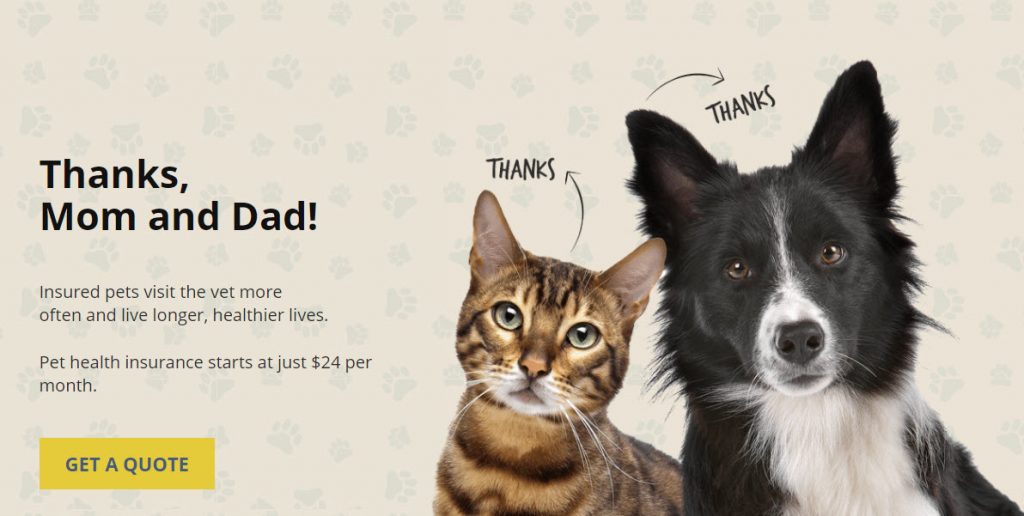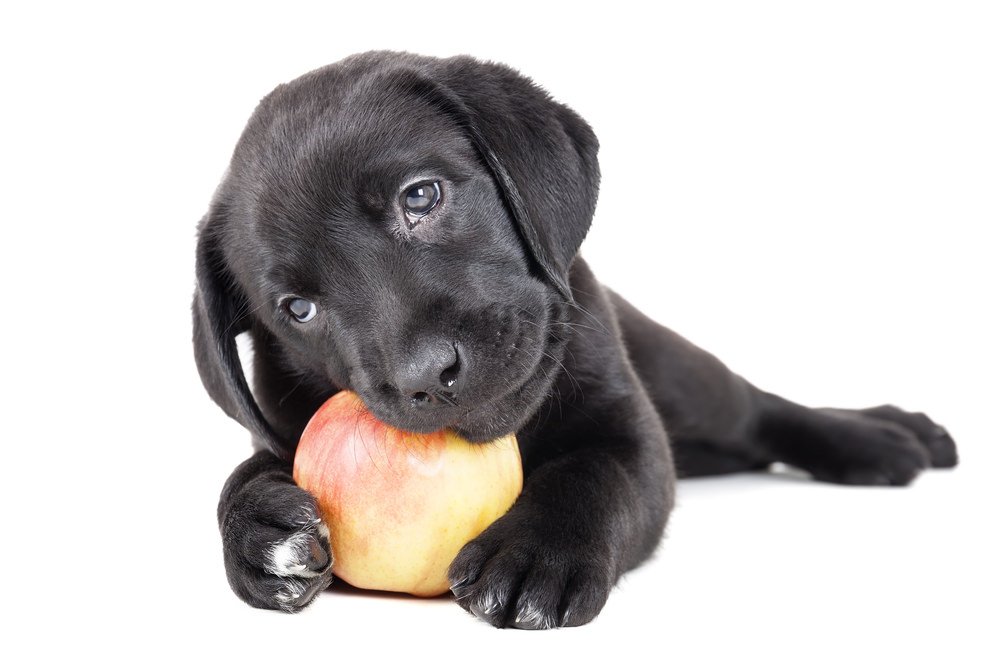Can Dogs Eat Apples?
Free Pet Insurance Comparison
Compare Quotes From Top Companies and Save
Secured with SHA-256 Encryption
Dr. Pippa Elliott BVMS, MRCVS
Veterinarian
Dr Pippa Elliott BVMS, MRCVS is a veterinarian with over 30 years of experience in companion animal practice. In 1987 she graduated from the University of Glasgow, with a degree in veterinary medicine and surgery. She works at Blythwood Vets and the People’s Dispensary for Sick Animals (PDSA). Pippa is an advocate of Fear-Free Practice, an animal addict, and a veterinary writer. She is also w...
Veterinarian
UPDATED: Jan 8, 2024
Pet Insurance U receives compensation from the third parties included on this site. This includes payment for clicks from our site to insurance providers’ sites and quote requests generated. Our rankings and reviews are not affected by payments from the insurance companies. The compensation we receive allows the site to be free and regularly updated. Our goal is to review every pet insurance provider, but not all companies are listed on the site.
And many of the companies we review do not pay us anything. We simply rate, compare and review their plan because we feel it will be valuable to you. Our reviews are guaranteed to be unbiased, professional and advertising compensation does not influence rankings.
We are a free online resource for anyone interested in learning more about pet insurance. Our goal is to be an objective, third-party resource for everything pet insurance related. We update our site regularly, and all content is reviewed by pet insurance experts.
UPDATED: Jan 8, 2024
Pet Insurance U receives compensation from the third parties included on this site. This includes payment for clicks from our site to insurance providers’ sites and quote requests generated. Our rankings and reviews are not affected by payments from the insurance companies. The compensation we receive allows the site to be free and regularly updated. Our goal is to review every pet insurance provider, but not all companies are listed on the site.
And many of the companies we review do not pay us anything. We simply rate, compare and review their plan because we feel it will be valuable to you. Our reviews are guaranteed to be unbiased, professional and advertising compensation does not influence rankings.
On This Page
Most of us humans’ love apples and they have become a main staple in our diet.
Apples are so filled with nutrients which is how the proverb was started “An apple a day keeps the doctor away!” But, can dogs eat apples too?
Apples are safe for dogs to eat, either red or green! Apples provide an excellent source of Vitamins A and C and even some much-needed fiber. Apples are low in fat and protein making them a really good snack for all dogs, particularly seniors.
Of course, you need to take out the seeds and remove the core before giving any apples to your pups.
Need Pet Insurance?
FACT: Pet insurance pays up to 90% of vet bills when your pet is sick or injured!
Are Apples Safe For Dogs to Eat?

Apples are good for dogs but as with any fruit or food, there are a few things to consider before feeding them to your dogs.
As with any new food, particularly fruit, make sure to introduce apples in small amounts to your dog to see how he reacts to the fruit.
Apples are filled with nutrients, but of course, too many apples can cause your dog to have an upset stomach.
Always consult your vet if you want to feed your dog apples or any human food to make sure they are OK for your dog and his particular needs.
Related: 10 Things You Must Know Before You Buy Pet Insurance
Benefits of Apples For Dogs
Apples, both red and green, can be a crunchy snack that is low in calories that have many nutrients and can add a little variety to your pup’s diet. They can be a great reward when training your pup when doled out in moderation.
Apples are high in fiber and low in protein which is helpful for dogs with specific dietary constraints that don’t allow high protein or fat. Apples can be particularly good for older dogs or those with specific illnesses.
With an abundance of the vitamins C, A and even K, apples are filled with nutrients including phosphorous and even calcium. The antioxidants in apples, just as in blueberries, can help with joint disease and ward off diseases such as cancer.
Eating apples, with their vitamins and crunch, are also good for your pup’s teeth and even helps your dogs’ breath!
Real Cost Savings from PetFirst Clients

Luna
PetFirst saved his parents
$6,712
A happy energetic Luna one morning couldn’t hold her food down. After months of multiple costly vet visits to specialists and an endoscopy, the problem was discovered and fixed. Luna put 22 pounds back on in no time and her parents were grateful for having PetFirst by their side to pay the bills.
Why Your Dogs Should Not Eat Apples
Apples, while nutritious, can become unsafe for dogs if they eat the seeds or cores. It is pretty easy for a dog to merely crunch up the whole apple in one sitting.
The seeds in an apple have cyanide (only a small amount) which is very toxic to dogs. Even though it takes a lot of apple seeds for your dog to develop cyanide poisoning, it can happen.
If this happens to be the case, pet insurance would help cover the costs of any of the medical bills and treatment that might be necessary during the visit.
We recommend Healthy Paws as the #1 pet health insurance provider!
Just make sure to remove the seeds, core and even stem of the apple before feeding any to your dog.
An apple core is particularly hard for your pup to digest and could cause choking or even a gastrointestinal blockage if swallowed.
Like any fruit, apples are high in sugar so make sure they are given to your dogs in very small portions.
The sugar can be harmful to dogs that suffer from diabetes or cancer which is why you should always ask your vet before feeding your dogs’ apples.
If your dog consumes too many apples, it can cause diarrhea or stomach upset even in the healthiest of healthy dogs.
If you feed your dogs’ apples, make sure that they are just plain apples and not the artificial products that have apple flavoring. The sugar and artificial flavors in these products can certainly cause stomach issues in pups.
Wash your apples before feeding your dog any apples to make sure they are clean.
While rare, some dogs might be allergic to apples. If you see any of the below symptoms after feeding your dogs any apple, stop feeding them and make sure to go the vet immediately.
Some allergic reactions to apples could include the following:
- Coughing
- Rash
- Breathing Heavily
- Sneezing
- Swelling
Enter your ZIP code below to view companies that have cheap pet insurance rates.
Secured with SHA-256 Encryption
How You Can Add Apples To Your Dog’s Diet
As mentioned above, each dog is different so it’s important to discuss with your vet whether you can give your dog any apple. Some dogs might have a medical condition that cannot tolerate fruit or specifically apples.
Once you get the OK from your vet, there are many different ways you can share apples with your dogs. Make sure to cut the apple into slices and get rid of the stems, seeds, and cores.
Some ideas:
- Freeze apples and serve the slices as a summer snack.
- Mix the apples in your pup’s wet food for a treat and extra fiber.
- Smash the apples and turn them into your own healthy recipe for apple sauce.
- Slice the apples and place them on top of your dog’s food.

Final Thoughts on Apples for Dogs
Apples are a tasty fruit filled with vitamins that your dog can enjoy in small amounts (without the seeds or core). Always introduce any new food or fruit slowly to make sure your dog doesn’t have any type of adverse reaction.
If your dog does show any symptoms of an upset stomach, diarrhea or any other negative reaction, take your dog to your vet immediately.
To learn more about human food that is safe and not safe for your pup, our ultimate guide to safe food for dogs is a great place to start.
Other articles you may find helpful:
Is Exotic Pet Insurance Necessary?
The Best Pet Insurance By State
Fun Facts, Dog FAQ, And Unsolicited Dog Advice
5 Training Commands to Save Your Dog’s Life
The Ultimate Guide to Safe Foods for Dogs
Finding safe alternative foods for your dogs to eat can be tricky. We have a long list of articles about every food you could possibly consider feeding your dog. One thing we recommend is that you consider looking into pet insurance for your pet and you can start by checking out the best rates for dog and puppy insurance.
What to do with a Picky Eating Dog
Can Dogs Eat Grapes and Raisins?
Why You Should NEVER Give Xylitol to Your Dog

Frequently Asked Questions
Are apples safe for dogs to eat?
Yes, apples are safe for dogs to eat, both red and green. They are a nutritious snack providing vitamins A and C, as well as fiber. However, precautions should be taken, such as removing seeds and the core before feeding.
What are the benefits of apples for dogs?
Apples are a low-calorie, crunchy snack rich in nutrients. They can be beneficial for older dogs or those with specific dietary constraints. Apples contribute to dental health, provide vitamins, and contain antioxidants that may help with joint disease and disease prevention.
Why should dogs not eat apple seeds or cores?
Apple seeds contain a small amount of cyanide, which is toxic to dogs. While it takes a significant number of seeds to cause poisoning, it’s essential to remove seeds, cores, and stems to prevent any potential harm.
Can dogs eat apples in large quantities?
No, feeding dogs too many apples, even though nutritious, can lead to stomach upset or diarrhea. Apples are also high in sugar, which can be harmful to dogs with certain health conditions like diabetes or cancer.
How can apples be added to a dog’s diet?
After getting approval from a vet, apples can be shared with dogs in various ways. It’s crucial to cut the apple into slices, removing stems, seeds, and cores. Apples can be given as a treat, added to meals, or used in training, but moderation is key.
What are the signs of an allergic reaction to apples in dogs?
While rare, some dogs may be allergic to apples. Signs of an allergic reaction include upset stomach, diarrhea, or other negative reactions. If any symptoms occur, it’s advised to stop feeding apples and seek veterinary attention.
Can dogs eat artificial apple-flavored products?
It is not recommended to feed dogs artificial apple-flavored products, as they may contain added sugars and artificial flavors that can cause stomach issues in dogs. Stick to plain, fresh apples.
How should apples be prepared before feeding to dogs?
Apples should be washed, sliced, and served without seeds, cores, or stems. Ensuring cleanliness and removing potential hazards is crucial to prevent choking or gastrointestinal blockages.
Can all dogs eat apples?
Each dog is different, and it’s essential to consult with a vet before introducing apples or any new food. Some dogs may have medical conditions that make them intolerant to fruits, including apples.
What should I do if my dog shows signs of an upset stomach after eating apples?
If your dog exhibits symptoms like upset stomach or diarrhea after consuming apples, it’s recommended to stop feeding apples and consult with a veterinarian promptly.
Enter your ZIP code below to view companies that have cheap pet insurance rates.
Secured with SHA-256 Encryption
Dr. Pippa Elliott BVMS, MRCVS
Veterinarian
Dr Pippa Elliott BVMS, MRCVS is a veterinarian with over 30 years of experience in companion animal practice. In 1987 she graduated from the University of Glasgow, with a degree in veterinary medicine and surgery. She works at Blythwood Vets and the People’s Dispensary for Sick Animals (PDSA). Pippa is an advocate of Fear-Free Practice, an animal addict, and a veterinary writer. She is also w...
Veterinarian
We are a free online resource for anyone interested in learning more about pet insurance. Our goal is to be an objective, third-party resource for everything pet insurance related. We update our site regularly, and all content is reviewed by pet insurance experts.


